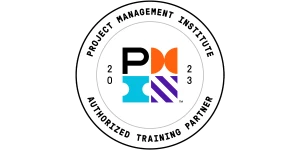Efficient Use of Poka Yoke
Background
With billions invested in manufacturing across the world and a lot of talk about Quality Assurance, there is immense focus on what goes on at the production floor space. ‘Statistical Quality Control (SQC)’, ‘total Quality Management’, ‘Zero Defects’ and techniques for Inspection focus on similar issues: How to reduce the number of errors? How to prevent defects? How to aim for Zero Defects, where the number of defects is equal to zero? How not to make mistakes?
‘Poka Yoke’, a Japanese term that means ‘mistake proofing’ was developed by Shigeo Shingo, a Japanese engineer, who developed the concept of Zero Quality Control (ZQC), as a part of his ‘Total Quality Management’ efforts.
His approach relied on the:
1. use of ‘Poka-Yoke’ (mistake proofing) devices that helped to prevent mistakes in manufacturing or
2. to inspect all the products using simple and affordable methods.
Although ‘Poka Yoke’ is equally applicable in non-product based manufacturing, but its most significant contribution is in manufacturing industries.
We must understand that when any company manufactures a product, be it dolls, shoes, sauce, electronics or computers, it has avoid defective products from reaching the final consumer. In this era of information, technology and competition, a manufacturer can no longer take his consumer for granted. He has to give the best quality and keep up to the standards that he promises. If a consumer is unhappy, it is likely that he will tell 10 people about his bad experience. But, if he is happy, he will be loyal to the products that serve him well. He will give a positive response to his friends as well.
So, how does a manufacturer apply common sense to manufacturing to make the number of defectives/errors less than before? Or, rather how can he delight his consumer by making a product that serves him well. By applying simple ‘Poka Yoke’ (mistake proofing) techniques and devices to your product, this problem can be solved if not eliminated completely. Over a period of time, many products have evolved to serve the same function more efficiently.
Following is a list of mistake proofing as applied to our everyday lives to avoid mistakes, reduce cost and live efficiently. This has been a result of products which have been changed a little for a lot more benefit.
- Sensors in urinals and wash sinks detect when water is to be turned off. This eliminates the problem of wastage of water at public restrooms.
- Timer-induced Lighting systems that turn off automatically after the duration set on the timer reaches its mark. This saves electricity in public washrooms, laundry rooms, etc.
- While smoke alarms inform about a potential hazard, doors near a library/departmental stores can beep off if the materials are not checked out in the correct order. This reduces risks and makes sure that people check out borrowed/purchased materials properly.
- The car does not start unless the ignition is turned on. The key does not turn off if the gear is in ‘reverse’ mode and the seat belt sign turns on if you forget your seatbelt. The gas level starts indicating if you need to refuel. These small indicators help us to drive safely and avoid accidents.
- The word processor or the web browser prompts us to save current work before closing the session. When we fill online questionnaires and personal information, there is an alert message which helps us not to miss out any details.
Conclusion: These changes have been made as a result of product research, product development, quality assurance and total quality management. ‘Poka Yoke’ deals with how simple techniques can be applied to ensure that all products are of good quality at the ‘producer’s end’ and how simple product modifications can be made to increase satisfaction at the ‘consumer’s end’.
To learn more about Six Sigma or Lean practices, go to www.6Sigma.us to learn more about our training solutions.
SixSigma.us offers both Live Virtual classes as well as Online Self-Paced training. Most option includes access to the same great Master Black Belt instructors that teach our World Class in-person sessions. Sign-up today!
Virtual Classroom Training Programs Self-Paced Online Training Programs






